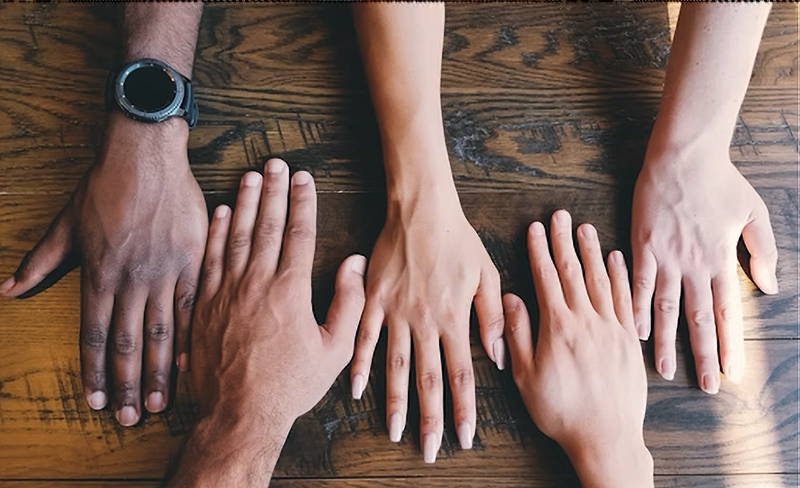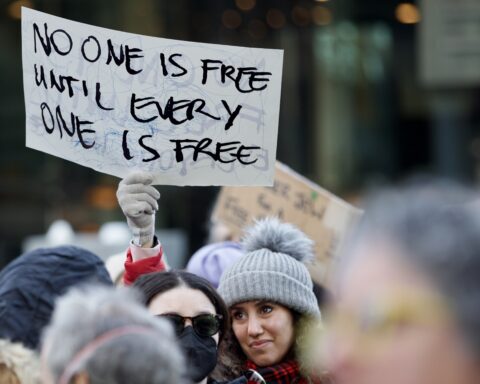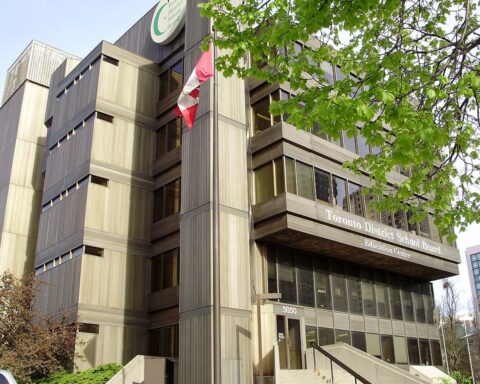As the country celebrates 50 years of official multiculturalism policy, panelists at the 4th annual Metropolis conference reflected on the ways immigrants have fought against discrimination as multiculturalism evolved as both idea and policy, not only here but globally.
Dr. Rajeev Bhargava, director of the Parekh Institute of Indian Thought in New Delhi, mentioned the ongoing farmers’ protests in that country as an example of how Muslims and Hindus have put aside communal divides to protest against laws they deem unfair.
In Great Britain, a March 2021 report from the Commission on Race and Ethnic Disparities helped give rise to populist forces in that region after downplaying the existence of institutionalized racism there, noted anthropology professor Mukulika Banerjee, from the London School of Economics and Political Science.
Even here in Canada — a global beacon of multiculturalism where 54 per cent of Canadians view it as a success — there still remain 26 per cent who don’t, according to study results from the Association for Canadian Studies shared with NCM. And though most Canadians think of criticisms of multiculturalism as “inaccurate,” some still believe some areas of the policy need a more “nuanced view.”
This has led to a constant redefining of the policy in order to accommodate a “rapidly evolving society,” the study states. The result has often been “very passionate debates” about the viability of multiculturalism, particularly in Quebec, where “some opponents of multiculturalism insist that it’s a vision that is incompatible with the views of the population.” That was painfully evident during this past election.
Of course, as Charles Taylor, professor emeritus at McGill University, suggested, critics of multiculturalism “who stick to the defence of their privilege…are also losing…because human beings are meant to live in truth and in contact and exchange with others.”
The Canadian philosopher also posited the main challenge lies within our own ways of thinking about others and the positions within hierarchies which we ascribe to ourselves. While these hierarchies are largely outdated in our modern world, Taylor warned against dismissing them, noting the huge social costs of discrimination — or, by contrast, the gains of its eradication.
“It is both sides,” he said. “The idea is that everybody benefits from overcoming discrimination.”
Resiliency in the face of discrimination
Resiliency has been one of the defining characteristics of culturally and ethnically diverse communities fighting discrimination and trying to integrate across Canada, or, for Indigenous Peoples, fighting not to be assimilated by Canada.
Dr. Peruvemba S. Jaya, for instance, a Tamil from India and a professor at the University of Ottawa, wanted to find out how three Tamil associations in Canada kept alive the heritage of the Tamil language without being absorbed into the larger multiculturalism of Canada.
“It ignited my curiosity to examine the space that Tamil and Tamil language associations and cultural associations occupy in the fabric of Canadian multiculturalism,” she said.
Using the example of modern faith-based schools versus the infamous Residential Schools, Mariia Alekseevskaia, a sociologist from the University of Ottawa, said the former have the ability to offer a high level of cultural sensitivity as part of its educational model. Residential school teachers lacked the “profound understanding of students’ cultural backgrounds” that is needed to “help students avoid a dissonance…between two cultures, the one at home and the one at school,” she said.
But when religious communities fail to separate “religious convictions from their political views…they are not offering an environment of respect for human rights,” she added, particularly for diverse groups such as the LGBTQ2+ community or those wanting to discuss abortion rights or euthanasia.
Audra Foggin, assistant professor at Mount Royal University and a ‘60’s scoop survivor said knowing people’s background stories is critical to our identities, and it’s essential for the healing process.
Negotiating our place: 50 years of multiculturalism through film
“We did not have to assimilate,” said filmmaker Cyrus Sundar Singh, who landed in Canada with his parents and siblings just a week after former prime minister Pierre Trudeau adopted multiculturalism as policy in 1971.
“We were free to be ourselves.”
Still, that freedom came at a price. Overcoming discrimination took resiliency.
“But we negotiated our places and stuck to our claims,” he said. “We became a threat to the larger community of your Canadians.”
Singh, now a Ph.D. student at Ryerson University, is the director of the Gemini-Award winning documentary, FilmClub (2001), produced with the National Film Board of Canada, which presents a visual representation of the evolution of multiculturalism as both a policy and a reality for those who lived through it.
It looks back to a film project in 1974, when schools didn’t have many after-school activities and a European immigrant and history teacher at King Edward Secondary school mentored students to make what would also turn out to be an award-winning Super 8mm film which they titled, Ohh Canada. The student club comprised first-born generation Canadians and those who arrived in Canada on the immigration wave of the early 1970s.
Twenty-five years later, Singh reunited the kids and the teacher to explore the legacies of their journeys through his documentary debut.
The Metropolis conference provided a platform for some of them to revisit Ohh Canada nearly 50 years after their arrival to a new country that they would end up adopting through pizza, Christmas and Indigenous culture.
The film can be watched for free here.
Fighting discrimination: origins of the 1971 policy
Though a beacon of multiculturalism, discrimination of the other runs deep within Canada’s veins. In fact, Canada’s very own multiculturalism policy is the result of a citizens’ movement demanding recognition, not something born out of the kindness of society or the government.
So, what was the genesis of this idea? In essence, the need to overcome discrimination.
In an informal and unscripted workshop, Michael Temelini, a political science professor from the University of Ottawa, further explained that in its origins — and often not brought up in public discourse about the policy — the Royal Commission on Bilingualism and Biculturalism (B&B) actually rejected multiculturalism at first.
In fact, according to him, in public hearings documents from records of the B&B Commission, it is evident that at first, Canada was thought to have only two dominant cultures — British and French — and that ethnic groups “should find a home in one of those two.”
“This was a very normal, common idea back then,” he said, which only began “dissipating” in the 1960s.
“There’s an idea that ethnicity, or cultural retention, was somehow backward, that it was uncivilized,” he said.
Simply put, before the citizens’ movement which fought for recognition to be part of the so-called modern world, people had to assimilate into the Anglo way of life.
It was resistance to that idea that birthed multiculturalism.
The NCM News Desk includes: Naser Miftari, Tazeen Inam, Veronica Silva Cusi, Daniela Cohen, Baisakhi Roy and Fernando Arce.
NewCanadianMedia.ca is Canada’s premier web site dedicated to news and views about the one-fifth of Canadians who are immigrants. You’ll find original journalism from an immigrant perspective along with content produced by our partners in Canada’s ethnic media. Our content provides fresh insights into developments in politics and society, enhancing your understanding of our diverse world.





